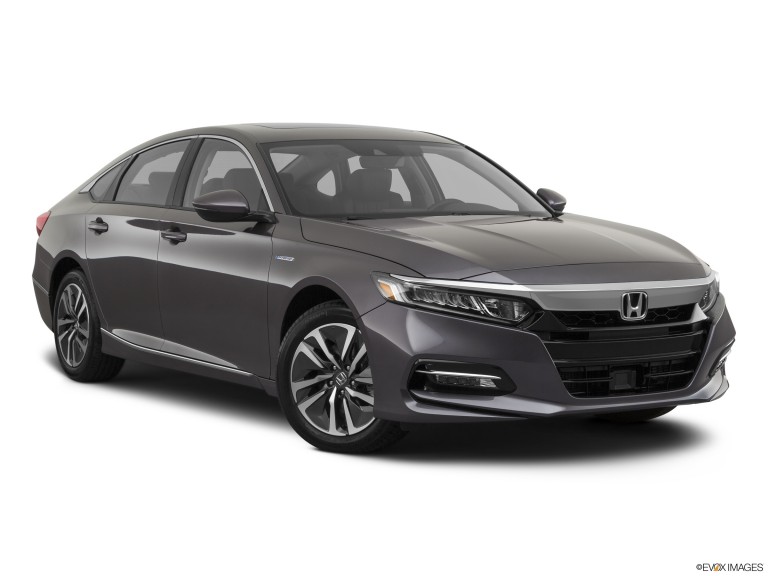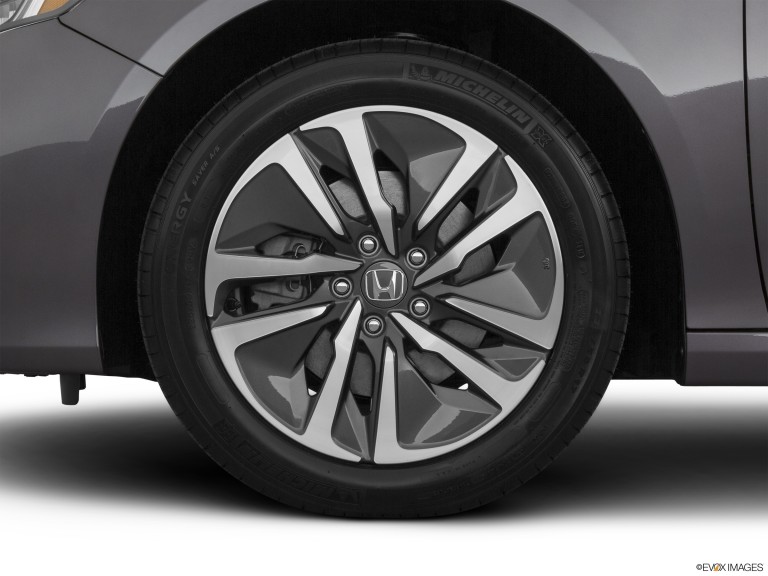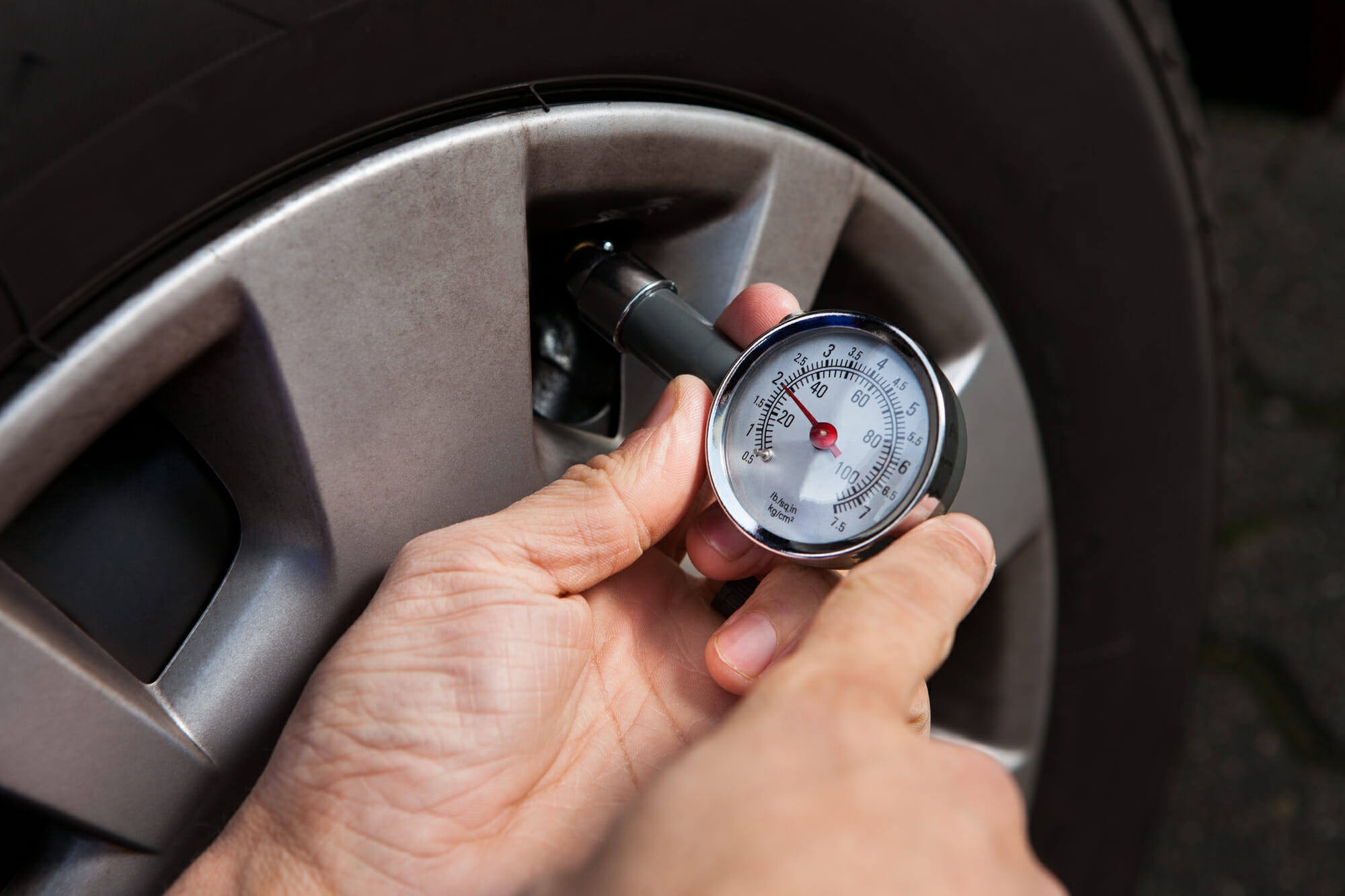Your Honda gets you everywhere and does a good job of keeping you and your family safe. To ensure that continues, you need to purchase the best tires available to minimize preventable accidents. It can be hard to know which tires are the best for your needs.
What are the best tires for a 2020 Honda Accord?
- Touring: Cooper CS5 Grand Touring – $123.99/tire
- Performance: Goodyear Eagle Sport All Season – $125.99/tire
- All-Terrain: Bridgestone Cooper Discoverer True North – $153.99/tire
- Winter/Snow: Goodyear Assurance WeatherReady – 199.99/tire

Are you unsure which tires are worth your investment? Do you want to avoid having to pay too much for tires by avoiding that “discount” lot in town? Let’s breakdown how to choose the tires that are right for your Accord to ensure your purchase is well worth the investment you make.
Best Tires for the 2020 Honda Accord

Touring – $123.99/Tire
Sometimes called grand touring tires, these are some of the most comfortable tires available. That is, they improve your overall comfort while also being reliable enough to keep you on the road in bad weather. They are considered all-season tires as well.
It’s important to look at the quality of the specific manufacturer’s product. Still, these tend to be a good option for your sedans and SUVs, and even some performance vehicles. They provide you with good overall traction in most conditions.
Most Honda Accord drivers are not looking for a sports performance from their vehicles (though why not!) which makes them less ideal for some drivers. Compared to other models, with their higher speed training, they tend to be the secondary option for those in less-than-ideal weather.
Owners of touring tires state they are a good tire and an affordable one overall. You can expect to find luxury versions (those with even higher specs) but most note the standard models offer good, responsive handling for most day-to-day needs.
Performance – $125.99/Tire
Are you looking to spruce up your Honda Accord? You could go with performance tires. Like touring, these are a step up from your base model. They can be a good option overall for those who want tires that provide a smooth ride and a few extra features.
Overall, performance tires have a big circumferential and tend to have lateral grooves on them. That helps to make them more reliable in wet conditions. They can do well in slick conditions when you still want to travel at high speeds.
For those seeking out performance tires for a Honda Accord, go for them if you want an improved amount of handling. However, they are also ideal for those who want higher speed ratings (think highway use) and drive in wet conditions often.
Performance tires for your Accord should be considered if they are made of high-quality components and materials. That includes silica-enriched tread components. This is what gives you that extra grip on slick roadways.
For reviews, you’ll find some people noting they love their performance tires because they spend a lot of time on a highway commute. They can provide a bit more traction and stability on these roadways.
All-Terrain – $153.99/Tire
All-terrain tires are what are most commonly found on larger vehicles, but they can work for your Honda Accord as well. These are aggressive tires, the ones that will give you the “stick” to the surface you need to get over the snow and potholes with ease.
If you do a lot of driving in your Accord and do so in difficult weather conditions or on roadways that are not paved, these tires work well. They cost significantly more, but that’s going to give you far more protection from rough conditions.
AT tires, as they are known, have a strong tread pattern with larger tread blocks. There are more areas where the tires can grip the pavement, that’s why they are the ideal off-road option. You can put them on your Accord if you want more protection and grip.
They have a few other benefits. They do not make a lot of noise and tend to be long-lasting tires (if you buy a top-notch brand you can trust). You can also count on them to be very comfortable because they work with your suspension system to create that easy ride.
Most often, these tires are not used on an Accord, but you can do so when you want more stability and protection for difficult conditions, even if that means the street your home is on is a dirt road.
Users say they love the safety they feel with these and the way they get over anything.
Winter/Snow – $199.99/Tire
What you do want to invest in if you live in an area with significant snow is winter tires, sometimes called snow tires. These are just right for the driver of a Honda Accord that’s on the road a good amount of time. They provide the best level of protection.
To do this, most of these tires have a significant, heavy siping and deep grooves. This helps the tires to push the snow and wet materials away, letting the tire better hit the pavement instead. You’ll find both studded winter tires and studless versions.
Unless you live in an area with significant snow on a routine basis (think Wisconsin or Alaska), you may not need studded winter tires for your Accord. Some states even make them illegal to use because of the damage they can cause to roads.
Studless versions are a good option for most others driving in winter weather. They do well with snow and ice, giving you less risk of ending up in the ditch. Those that buy these tires say the investment is worth it for the peace of mind.
People Also Ask
Does the 2020 Honda Accord come with a spare tire?
Yes, the 2020 Honda Accord does come with a spare tire. It is rather easy to access, too. To find it, open up the truck and remove anything in it. You’ll notice the fabric has a grip. Pull on this and the top will come up. The spare tire is located in a well here.
What’s the recommended tire pressure for a 2020 Honda Accord?

- Front: 35 psi (high speed driving)
- Rear: 33 psi (high speed driving)
- Front: 32 psi
- Rear: 32 psi
How do you reset the tire pressure indicator on a 2020 Honda Accord?
When you get a “low pressure” warning on your Honda Accord, it’s best to stop the vehicle, add air to your tires, and then double check that it’s accurate to avoid accidents. You can then reset it on the touchscreen of your vehicle.
Go to the “Setting” screen. Find the “Vehicle” tab. There, select the “TPMS Calibration.” This will lead you to “Calibrate.” The car does the rest of the work of checking the tire pressure for you. If accurate, it will turn off the tire pressure indicator.